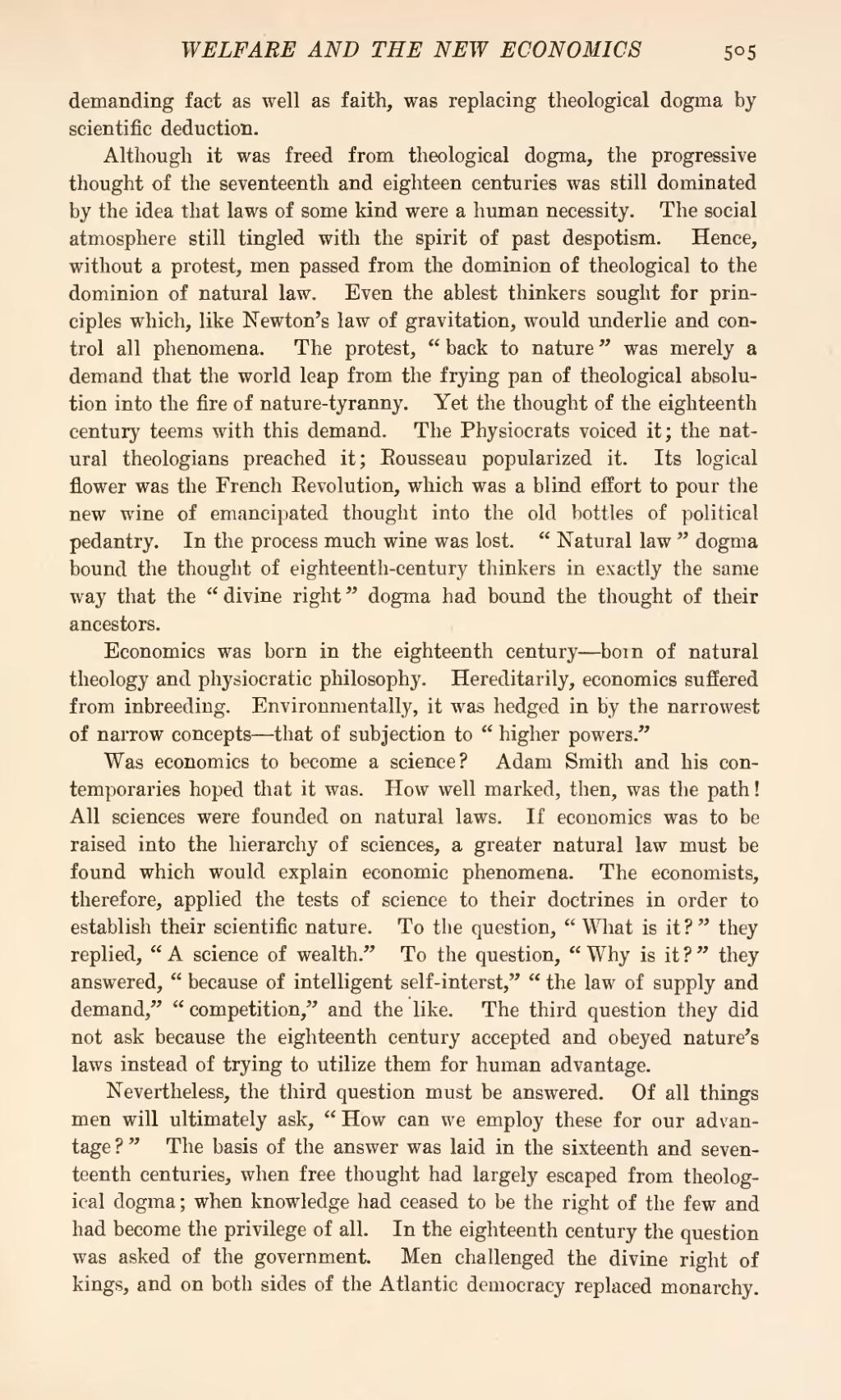demanding fact as well as faith, was replacing theological dogma by scientific deduction.
Although it was freed from theological dogma, the progressive thought of the seventeenth and eighteen centuries was still dominated by the idea that laws of some kind were a human necessity. The social atmosphere still tingled with the spirit of past despotism. Hence, without a protest, men passed from the dominion of theological to the dominion of natural law. Even the ablest thinkers sought for principles which, like Newton's law of gravitation, would underlie and control all phenomena. The protest, "back to nature" was merely a demand that the world leap from the frying pan of theological absolution into the fire of nature-tyranny. Yet the thought of the eighteenth century teems with this demand. The Physiocrats voiced it; the natural theologians preached it; Rousseau popularized it. Its logical flower was the French Revolution, which was a blind effort to pour the new wine of emancipated thought into the old bottles of political pedantry. In the process much wine was lost. "Natural law" dogma bound the thought of eighteenth-century thinkers in exactly the same way that the "divine right" dogma had bound the thought of their ancestors.
Economics was born in the eighteenth century—born of natural theology and physiocratic philosophy. Hereditarily, economics suffered from inbreeding. Environmentally, it was hedged in by the narrowest of narrow concepts—that of subjection to "higher powers."
Was economics to become a science? Adam Smith and his contemporaries hoped that it was. How well marked, then, was the path! All sciences were founded on natural laws. If economics was to be raised into the hierarchy of sciences, a greater natural law must be found which would explain economic phenomena. The economists, therefore, applied the tests of science to their doctrines in order to establish their scientific nature. To the question, "What is it?" they replied, "A science of wealth." To the question, "Why is it?" they answered, "because of intelligent self-interst," "the law of supply and demand," "competition," and the like. The third question they did not ask because the eighteenth century accepted and obeyed nature's laws instead of trying to utilize them for human advantage.
Nevertheless, the third question must be answered. Of all things men will ultimately ask, "How can we employ these for our advantage?" The basis of the answer was laid in the sixteenth and seventeenth centuries, when free thought had largely escaped from theological dogma; when knowledge had ceased to be the right of the few and had become the privilege of all. In the eighteenth century the question was asked of the government. Men challenged the divine right of kings, and on both sides of the Atlantic democracy replaced monarchy.
